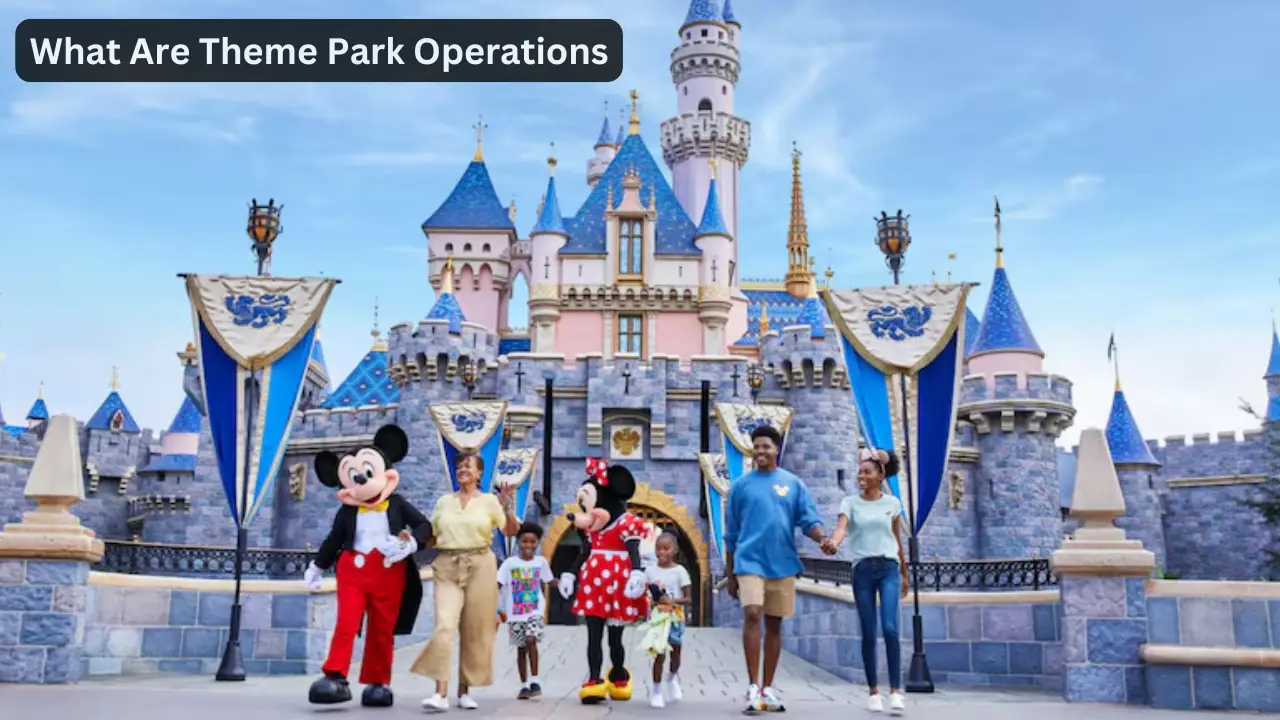What Are Theme Park Operations

Theme park operations involve the management and execution of all activities and processes required to run a theme park efficiently. This encompasses a wide range of responsibilities, from daily operational tasks to long-term strategic planning.
1. Operations Management
Daily Operations: Managing daily operations in a theme park involves a range of tasks to ensure everything runs smoothly. For example, Disney World operates with over 70,000 employees daily, coordinating numerous activities such as ride operations, guest services, and park maintenance. Efficient daily management is crucial for handling the large volume of visitors and maintaining high standards.
Staff Management: Effective staff management includes recruiting, training, and supervising employees across various departments. Universal Studios, with its vast workforce, invests significantly in training programs to ensure staff can deliver high-quality service. Proper staff management helps maintain operational efficiency and enhances guest satisfaction.
Safety and Security: Safety and security are paramount in theme park operations. Parks conduct rigorous daily safety checks; for instance, Six Flags parks perform over 1,000 ride inspections daily. Security measures include surveillance and crowd management to protect guests and staff. Ensuring safety helps prevent accidents and maintains a secure environment for everyone.
2. Guest Experience
Guest Services: Providing excellent guest services is key to a successful theme park operation. Parks like Disneyland focus on enhancing the visitor experience with services such as fast passes and guest assistance. For example, Disneyland serves around 51 million guests annually, emphasizing the need for efficient guest services to ensure a memorable visit.
Attractions Management: Managing attractions involves overseeing the operation of rides, shows, and entertainment options. Disney’s Magic Kingdom, which features over 40 attractions, requires careful coordination to ensure each ride and show operates smoothly. Effective management keeps guests engaged and ensures a consistent and enjoyable experience. For attraction they also introduced games not normally being played in such parks like fiskning,
Food and Beverage: Managing food and beverage services involves providing a variety of dining options. For instance, Epcot’s World Showcase offers cuisine from 11 different countries, catering to diverse tastes. Ensuring high-quality food service and cleanliness is essential for guest satisfaction and enhances the overall park experience.
3. Maintenance
Ride Maintenance: Regular ride maintenance is essential for safety and operational reliability. Cedar Point, with its 70+ rides, performs detailed inspections and maintenance to ensure rides are safe and functional. Routine checks and timely repairs prevent malfunctions and ensure a smooth operation.
Park Upkeep: Maintaining the park environment involves cleaning and repairing facilities, landscaping, and managing infrastructure. Parks like Busch Gardens employ large teams for park upkeep. For example, they maintain over 380 acres of parkland, including landscaping and infrastructure, to ensure a clean and visually appealing environment.
4. Marketing and Sales
Promotions: Marketing strategies are vital for attracting visitors. For instance, SeaWorld uses seasonal promotions and special events to boost attendance. In 2022, SeaWorld’s marketing efforts helped attract over 25 million visitors, demonstrating the impact of effective promotions on visitor numbers.
Ticketing: Managing ticket sales involves setting prices and handling admissions. Parks like Legoland use dynamic pricing models to adjust ticket prices based on demand. For example, Legoland adjusts prices based on peak and off-peak times to optimize revenue and manage guest flow efficiently.
5. Finance and Administration
Budgeting: Proper budgeting is crucial for financial management. Walt Disney World invests approximately $2 billion annually in new attractions and park improvements. Effective budgeting ensures that parks can manage operating expenses, invest in enhancements, and achieve financial goals.
Reporting: Performance metrics and financial reports help in decision-making. Parks track key metrics such as attendance and revenue. For example, Disney parks regularly analyze visitor data to assess performance and make strategic adjustments. Accurate reporting is essential for financial planning and operational improvements.
6. Strategic Planning
Long-term Development: Strategic planning includes developing new attractions and expansions. Universal Orlando has invested over $1 billion in new attractions over the past decade to stay competitive. Long-term planning helps attract repeat visitors and maintain the park’s appeal.
Guest Feedback: Using guest feedback drives improvements and innovation. Disneyland collects millions of guest feedback responses annually to understand preferences and areas for enhancement. Incorporating feedback helps improve the guest experience and ensure the park meets visitor expectations.
7. Compliance
Regulations: Compliance with safety, health, and environmental regulations is essential. For instance, parks must adhere to safety standards set by ASTM International. These regulations cover everything from ride safety to environmental practices, helping ensure a safe and compliant park environment.


No Comment! Be the first one.